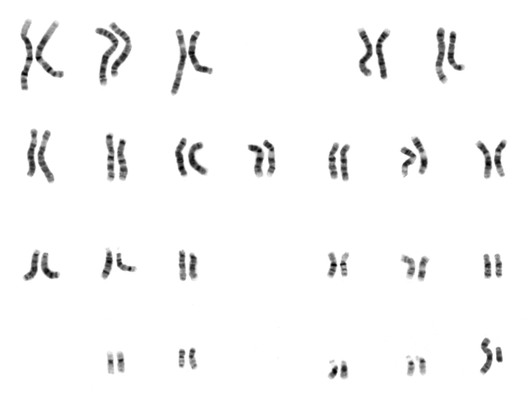A genome is the collection of an organism's hereditary information as encoded in its DNA. For most life forms, DNA is assembled into chromosomes; in the figure below, we show an image depicting all of a human male's chromosomes, which is called a karyotype.

Polyploid organisms are those that possess multiple copies of homologous chromosomes; for example, humans are diploid, meaning that we have two copies of each autosome (we also have two copies of our sex chromosomes). For polyploid organisms, we only need to gather a haploid (single) set of chromosomes to have a mostly adequate picture of the genome. This still presents a daunting challenge: the 23 pairs of chromosome pairs making up a human genome form 3.2 billion base pairs.
The individuals of a species share the vast majority of their DNA (humans share about 99.9% of our genome), and so we may also refer to the collective genome of a species. In 2001, the human genome was finally sequenced by taking an average case (consensus) genome from 12 individuals, thus completing a 3 billion dollar project.
The term "genome" can also be applied to the specific DNA stored in cellular organelles. Researchers speak of the "mitochondrial genome" or the "chloroplast genome," which are distinct from the nuclear genome.